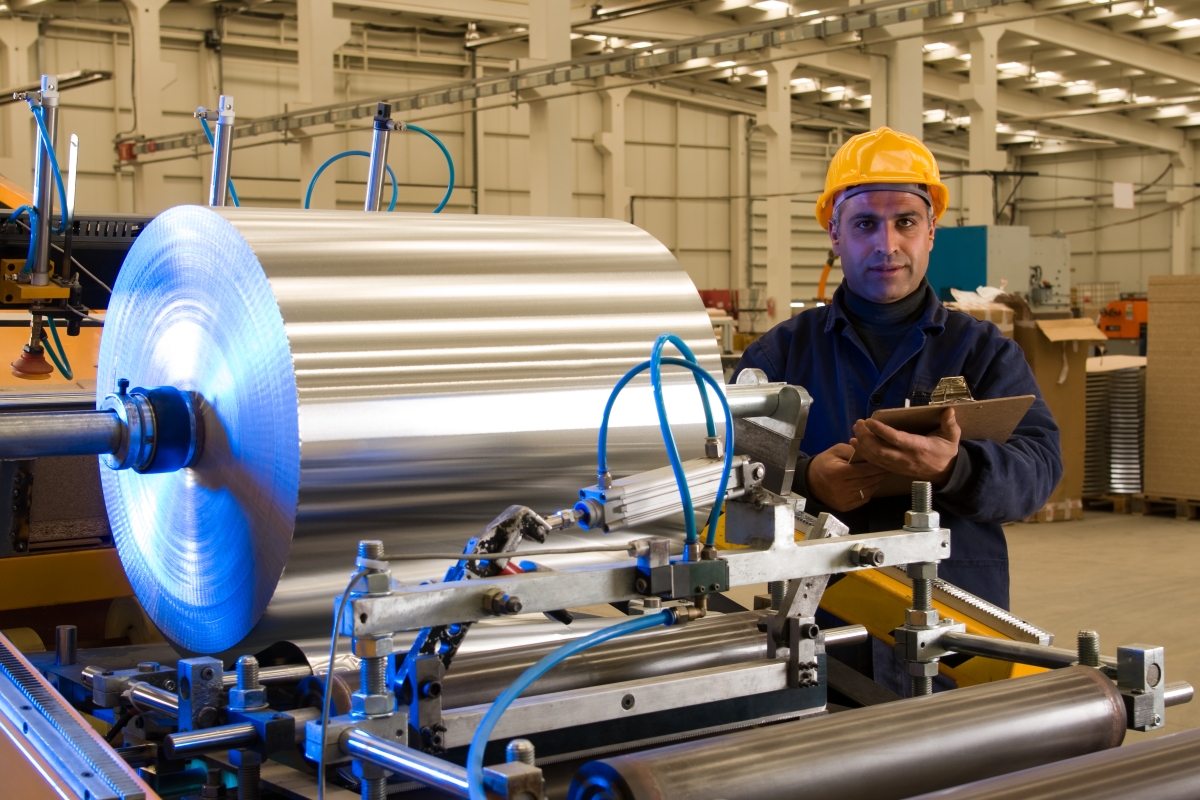Career Overview
Machine operators in mineral and metal processing run single-function machines or machinery that are part of a larger production to process mineral ore and metal products.
People in this career group work in mineral ore and metal processing plants such as copper, lead and zinc refineries. They also work in uranium processing plants, steel mills, aluminum plants, precious metal refineries and cement processing plants.
Job Titles
Duties
Machine operators, mineral and metal processing, perform some or all of the following duties:
- Set up, prepare and adjust mineral ore, metal and cement processing machinery to carry out one step in the overall mineral ore or metal processing operation
- Operate single-function machinery to grind, separate, filter, mix, treat, cast, roll, refine or otherwise process mineral ores
- Look at gauges, meters, computer printouts, video monitors and products to make sure machine operates properly and confirm specific processing conditions
- Make adjustments to machinery as needed
- Record production information and complete reports
- May help with machinery maintenance or repair
Earnings
Earnings is income that workers receive in exchange for their labour. Depending on the type of employment, earnings can be in the form of wages (hourly), salaries (fixed monthly or annual) or self-employed earnings.
Work Environment
# Workers Employed
555% Employed Full Time
72%Key aspects of the work in this occupation:
- Work takes place in a regular controlled indoor setting
- Work also takes place in an indoor environment where temperatures or humidity may vary considerably
- Working with equipment, instruments, machinery or power/hand tools may be source of injury
- Workers may be exposed to fire, steam or hot surfaces that can be hazardous
- The workplace many contain strong or toxic odours
- Airborne particles such as dust and sand may be present in the work environment
Career Pathways
With experience, machine operators may progress to central control and process operators in mineral and metal processing.
There is little movement among the various types of machine operators within the mineral and metal processing industry.
Related Careers
Occupational Interests
It’s important to understand what kinds of occupations align with your interests.
For more about occupational interests visit Skills for the Future Workforce > Characteristics.
Here are the top occupational interest(s) for this career profile:
Education, Training and Skills
- Completion of secondary school is usually required
- On-the-job training is provided
- Experience as a labourer in mineral and metal processing is usually required for machine operators
Education programs in B.C.
The following program areas are related to this occupation:
- Academic/Basic Upgrading

Skills
Every job calls for a certain set of skills. Knowing those skills is the first step in finding a good career fit.
Here, you will find the 10 most relevant workplace skills. Some are more important to achieving success in a certain career than others. These skills may come naturally to you or you may need to gain them through education, training and experience.
See the list of work-related skills below, ranked in order of importance for this career. Check out the list and see if this career matches your skills—take that first step!
Watching gauges, dials or other indicators to make sure that a machine is working properly.
Controlling operations of equipment or systems.
Keeping track of and assessing your performance, other individuals, or organizations to make improvements or take corrective action.
Conducting tests and inspections of products, services or processes to evaluate quality or performance.
Talking to others to share information effectively.
Using logic and reasoning to identify the strengths and weaknesses of alternative solutions, conclusions or approaches to problems.
Giving full attention to what other people are saying, taking time to understand the points being made, asking questions as appropriate, and not interrupting at inappropriate times.
Understanding written sentences and paragraphs in work-related documents.
Considering the relative costs and benefits of potential actions to choose the most appropriate one.
Adjusting actions in relation to others' actions.
Labour Market Statistics
Discover data, facts and information that have been gathered and analyzed. Learn about the characteristics of the economy and labour market in B.C.
Employment
Find out about employment types and trends by region and industry.
Employment
555Employment by Region







| Region | Employment | % Employment of this Occupation |
|---|---|---|
| Cariboo | 25 | 4.5% |
| Kootenay | 90 | 16.2% |
| Mainland/Southwest | 175 | 31.5% |
| North Coast and Nechako | 140 | 25.2% |
| Northeast | 10 | 1.8% |
| Thompson-Okanagan | 75 | 13.5% |
| Vancouver Island/Coast | 40 | 7.2% |
Labour Market Outlook
The B.C. Labour Market Outlook is a 10-year forecast of the expected supply and demand for labour in the province. It’s usually updated every year. The purpose is to provide British Columbians with the knowledge to make informed decisions on careers, skills training, education and hiring.
Forecasted Job Openings (2024-2034)
290Forecasted Job Openings
Forecasted Employment Growth Rate
Composition of Job Openings
Job Openings by Region (2024-2034)







| Region | Job Openings | Avg. Annual Employment Growth |
|---|---|---|
| Cariboo | 10 | -0.4% |
| Kootenay | 30 | 0.1% |
| Mainland/Southwest | 110 | 1.3% |
| North Coast and Nechako | 130 | 1.4% |
| Northeast | Not available | Not available |
| Thompson-Okanagan | 20 | 0.2% |
| Vancouver Island/Coast | 0 | -1.0% |
Industry Highlights
Learn about the opportunities in B.C.'s major industries, including employment trends, earning potential, locations of work and more.
Forecasted Job Openings by Industry
| Industry | Job Openings (2024-2034) |
|---|---|
| Manufacturing | 180 |
| Mining and Oil and Gas Extraction | 70 |
| Professional, Scientific and Technical Services | 30 |
| Wholesale Trade | 10 |
| Construction | 10 |
Resources
Resource information is currently not available.







